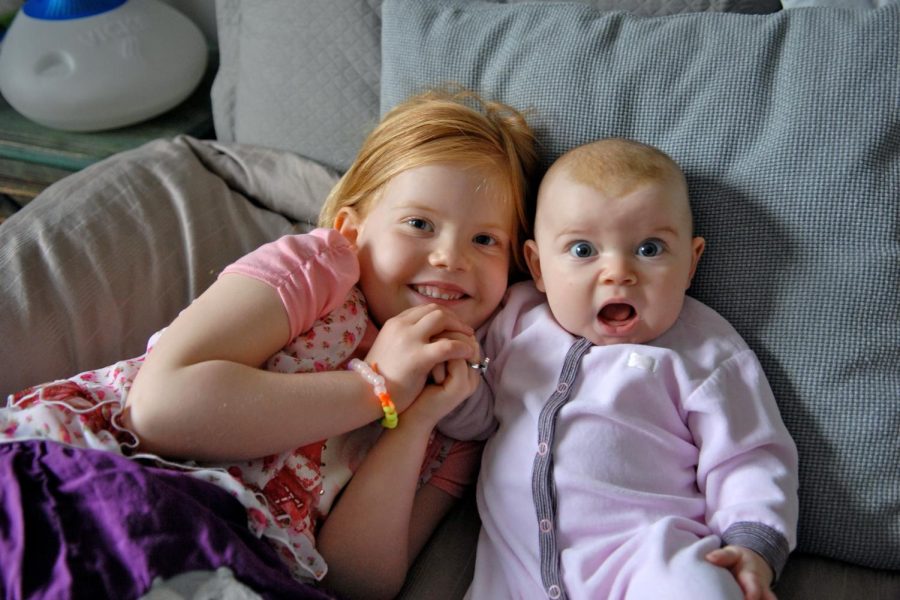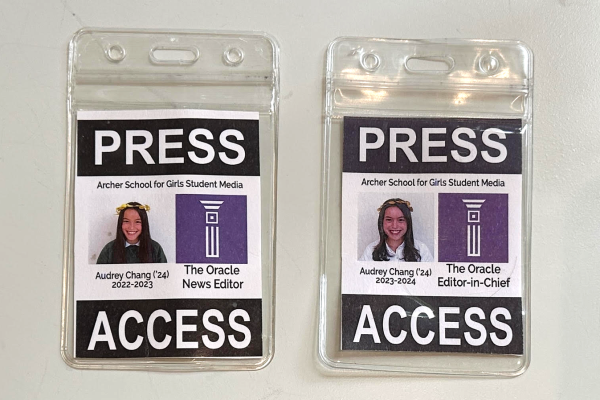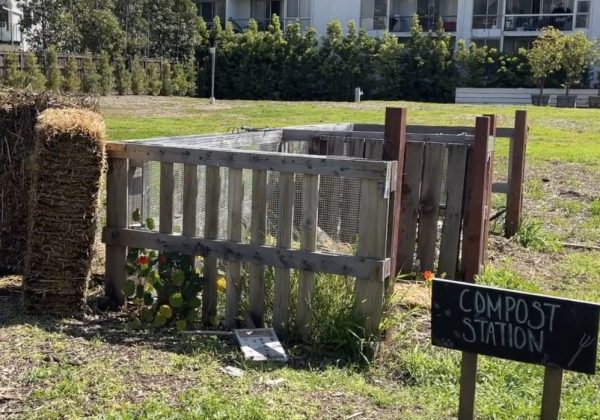Op-Ed: Being a big sister made me a better leader
Photo credit: Sarah Rafferty
My sister and I smile for a picture in the summer of 2012. We have always had a very close relationship, and I have loved taking care of her; she has taught me so many lessons. I am grateful that she helped me grow my leadership skills through the experience of taking care of her.
May 31, 2023
You’ve probably heard the term “natural-born leader” before, but I firmly believe there is no such thing. How can you be born to lead if learning the skills of leadership takes time? Behind the scenes of these so-called natural-born leaders, they make mistakes, discover their leadership style, build paths of communication and practice often. I’m not even close to being a natural-born leader, but being an older sibling has certainly helped me become a confident leader.
When talking to my friends, who are also the eldest children, they related to feeling responsibility and pressure to take on a leadership position at home. This feeling comes with the role of being the oldest child. Before I was 3 years old, I got my parents’ undivided attention. When I turned 4, my little sister came along; I loved having a built-in best friend, but I automatically became a third support system for her, something I never received.
According to The Atlantic, firstborns are 30% more likely to be in leadership positions than younger siblings. The lessons I learned through experiences with my sister grew my leadership skills outside of my home, and I use these skills almost every day.
On her first day of first grade, my sister was so nervous. She was worried about finding her classrooms, making friends and talking to teachers. When she came to me confused, I showed her around and did my best to explain the systems of our school. I transferred the skills I learned from this experience to guiding prospective students as an Archer ambassador for the past two years.
Last year, I was elected to Archer’s Honor Education Council (HEC): a board of students that witness and deliberate violations of the Honor Code. I wasn’t born for this role — feeling prepared for it came with practicing with my sister. Before joining HEC, I talked with her about her ethical dilemmas and advised her on her choices.
According to The Conversation, firstborn children build psychological traits that contribute to successful leadership, such as responsibility, creativity, obedience and authority. My younger sister has taught me to be responsible for myself and the people around me, whether at school or at home.
I’ve also learned to get creative with making rules to support her. When she was little, it was hard to get her to listen to me, so I had to change my leadership style. This taught me not all leadership styles are right for each moment; you need to carefully assess what works for each scenario. For example, if she doesn’t understand my verbal instruction, I try to lead by example.
This also improved my leadership at school. If I’m working on a group project, I have to try a few different leadership styles before I am successful with my communication. For example, if leading by explaining doesn’t work, I try to lead through demonstration. I learned which styles are the most effective for me from practicing with my sister. The next time you need your little brother to unload the dishwasher, but he just won’t listen, try a different approach, like compromising or dividing up the work.
Patience is key; the leadership process is not always easy. When I lead my younger sister, sometimes I make mistakes. I don’t communicate clearly enough, so she doesn’t follow my instructions. However, our experiences have allowed me to make mistakes in a safe space and improve how I communicate.
Communicating with a younger sibling can be frustrating but will give you critical tools that improve your leadership in the real world. I can imagine that if it was real, being a natural-born leader would be easy. But, even if I was a natural-born leader, I wouldn’t have all of the experiences and lessons from my younger sister that I cherish and value. Be grateful to your younger siblings. The lessons they teach you might stick with you for a lifetime.



















